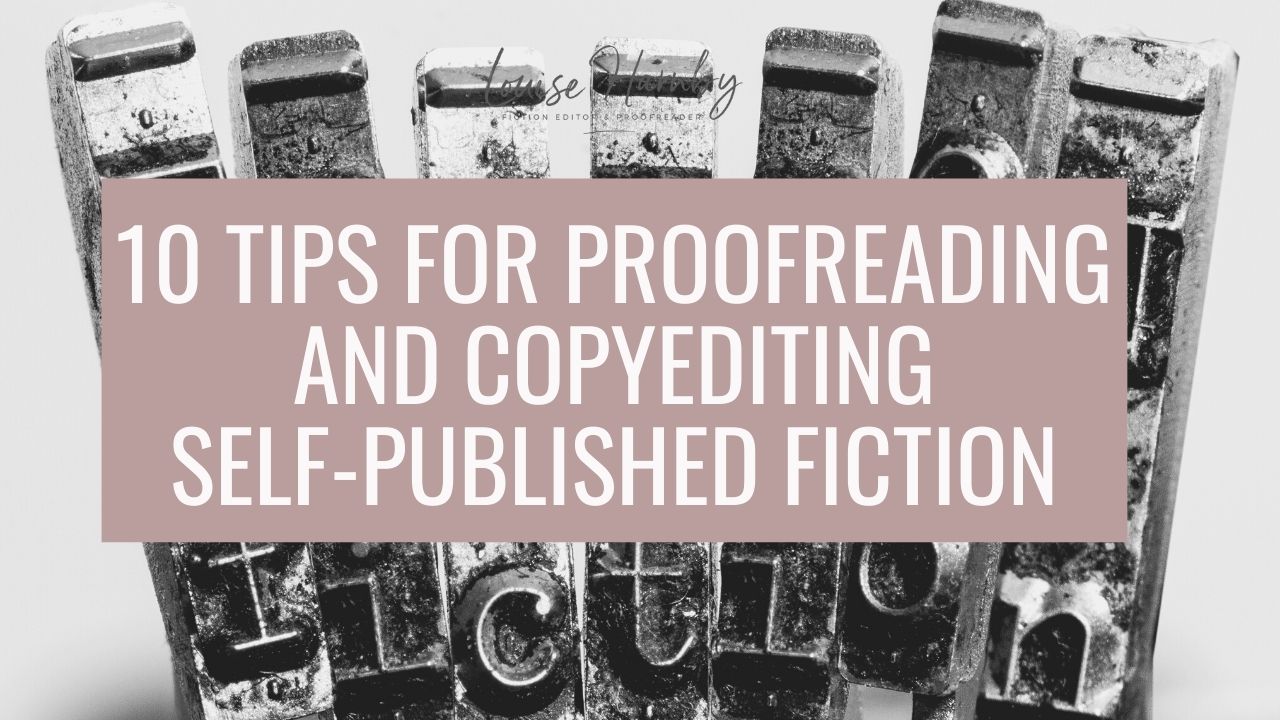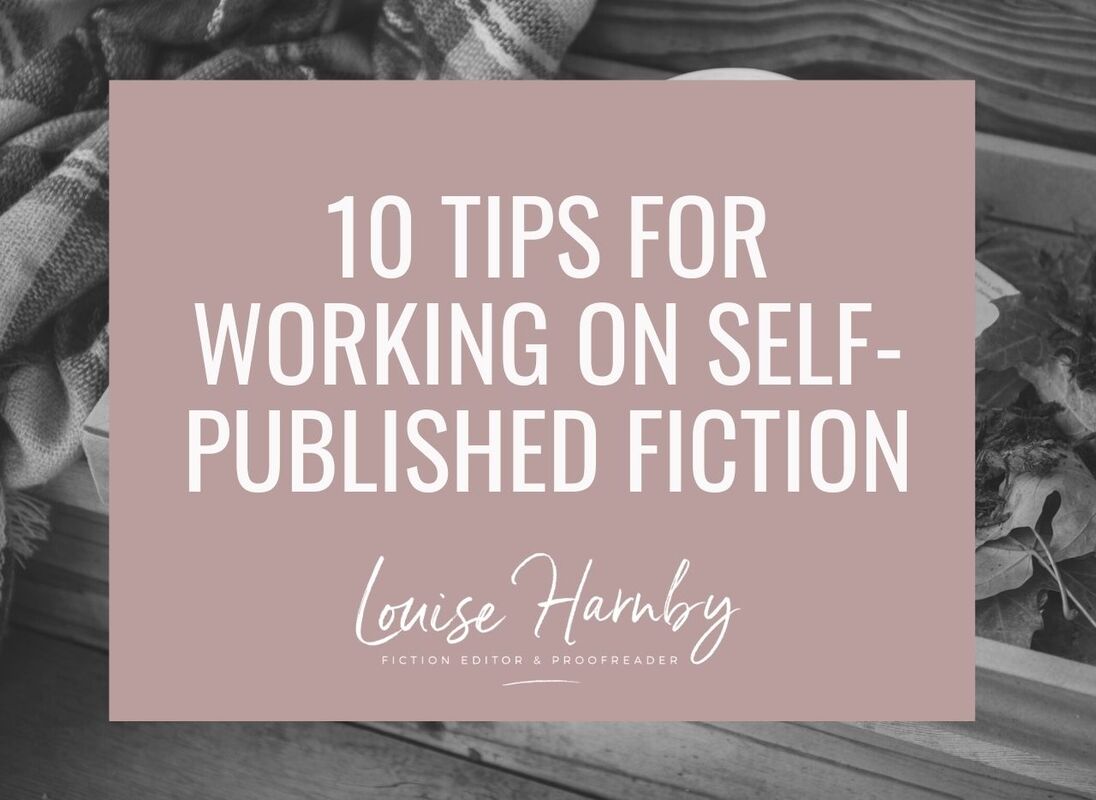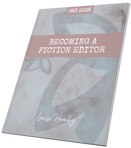|
Here are 10 tips to help you prepare the way for editing and proofreading fiction for independent authors and self-publishers.
If your editorial business is relatively new and you’re keen to specialize in fiction editing, there are some core issues that are worth considering. Some of these certainly apply to other specialisms, but fiction does bring its own joys and challenges.
1. Untangle the terminologyYou'll need to be sensitive to the fact that your clients may not be familiar with conventional editorial workflows or the terms we use to describe them! Clarify what the client expects, especially when using terms like ‘proofreading’ and 'editing'.
2. Discuss the revision extentClarify the extent of revision required before you agree a price.
3. Manage expectationsFind out how many stages of professional editing the file has already been through.
4. Put the client first – it’s all about the authorWhat’s required according to the editorial pro and what’s desired by the client (owing to budget or some other factor) could well be two very different things.
5. Be a champion of solutionsThe authors we’re working with are at different stages of writing-craft development. Some are complete beginners, some are emerging, others are developing and yet others are seasoned artists. If they’re in discussion with us, it’s because they think we can help.
6. Be prepared to walk awaySometimes the author and the editor are simply not a good fit for each other. In the case of fiction, this can be because the editor can't emotionally connect with the story.
7. Decide whether fiction's a good fit for youThere are challenges and benefits to fiction editing and proofreading.
8. Do a short sample edit before you commitUnless you’ve previously worked with the author, work on a short sample so that you know what you’re letting yourself in for.
9. Query like a superhero!All querying requires diplomacy, but fiction needs a particularly gentle touch.
10. Keep your clients' mistakes to yourselfSome of our self-publishing clients are pulled a thousand-and-one ways every day. And, yet, they’ve found the time and energy to write a book. We must salute them. Some are right at the beginning of the journey. There’s still a lot to learn and they’re on a budget; they’ve not taken their book through all the levels of professional editing that they might have liked to if things had been different. Some haven't attended writer workshops and taken courses, and they probably never will – there’s barely enough time in the day to deal with living a normal life, never mind writing classes. They’re doing the best they can. With that in mind, respect the journey.
We must always, always respect the writer and their writing, and acknowledge the privilege of having been selected to edit for them. Those are my 10 tips for working with indie fiction writers! I hope you find them useful as you begin your own fiction-editing journey!
Louise Harnby is a line editor, copyeditor and proofreader who specializes in working with crime, mystery, suspense and thriller writers.
She is an Advanced Professional Member of the Chartered Institute of Editing and Proofreading (CIEP), a member of ACES, a Partner Member of The Alliance of Independent Authors (ALLi), and co-hosts The Editing Podcast. Visit her business website at Louise Harnby | Fiction Editor & Proofreader, say hello on Twitter at @LouiseHarnby, connect via Facebook and LinkedIn, and check out her books and courses.
8 Comments
Louise Harnby
15/8/2018 11:31:28 am
Right there with you, Sarah!
Reply
18/8/2018 08:59:39 am
Thanks, Louise for this thorough and helpful information. :) --- Suzanne
Reply
Louise Harnby
18/8/2018 03:35:09 pm
Good to know you found it useful, Suzanne! Thank you!
Reply
18/8/2018 09:45:40 am
Thanks - that's also very helpful for an author with several books out, but who's in need of a new editor!
Reply
Louise Harnby
18/8/2018 03:42:34 pm
Hi, Jemima. Glad you found it useful! I have another article on how to source an editor if you're interested. I wrote it for beginners so it's probably not quite on point for you, but I'll link to it here just in case it's of any help: https://www.louiseharnbyproofreader.com/blog/how-do-i-find-a-proofreader-copyeditor-or-developmental-editor
Reply
15/1/2019 09:24:23 am
You describe and advise so clearly and compassionately. I strive to attain your skills and love that I'm on the same path as you. It's inspiring to see you turn, look back to your fellow travellers, way way down the road, and beckon us on. Hugs
Reply
Louise Harnby
15/1/2019 10:54:58 am
Thank you, Chris! What a gorgeous message. Made my day!
Reply
Leave a Reply. |
BLOG ALERTSIf you'd like me to email you when a new blog post is available, sign up for blog alerts!
TESTIMONIALSDare Rogers'Louise uses her expertise to hone a story until it's razor sharp, while still allowing the author’s voice to remain dominant.'Jeff Carson'I wholeheartedly recommend her services ... Just don’t hire her when I need her.'J B Turner'Sincere thanks for a beautiful and elegant piece of work. First class.'Ayshe Gemedzhy'What makes her stand out and shine is her ability to immerse herself in your story.'Salt Publishing'A million thanks – your mark-up is perfect, as always.'CATEGORIES
All
ARCHIVES
July 2024
|
|
|
|


















 RSS Feed
RSS Feed





